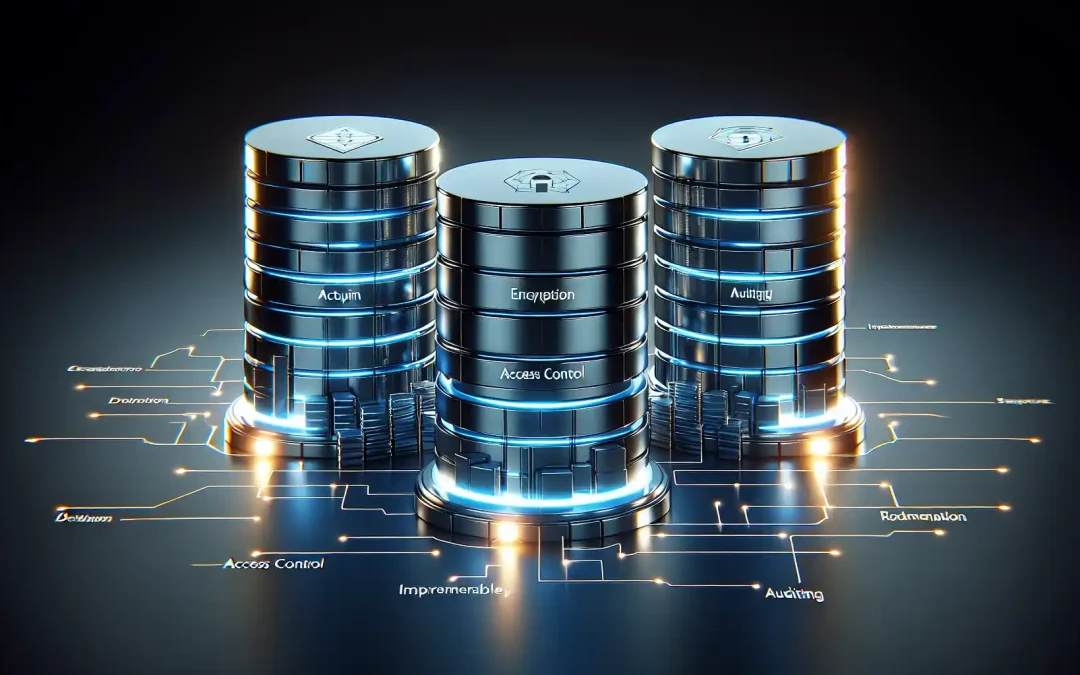Data is the lifeblood of modern business. It is the raw material that fuels everything from decision-making to innovation. However, just like any raw material, data needs to be managed and processed effectively to be valuable.
With the increasing volume, variety, and velocity of data being generated, traditional data management approaches are struggling to keep up. This is where modern data management strategies come into play.
The 5 modern data management strategy tips are:
- Adopt a data governance framework
- Invest in a robust data management system
- Embrace the power of automation
- Leverage cloud-based data storage and processing
- Prioritize data security and privacy
In this article, we’ll outline the steps you need to take to ensure your data is not only managed effectively but also utilized to its full potential.
So, let’s get into it!
The 5 Tips for Modern Data Management

Modern data management involves the implementation of strategies and technologies that can handle large volumes of data efficiently and cost-effectively.
The 5 tips that we will discuss in this section are the following:
- Adopt a Data Governance Framework
- Invest in a Robust Data Management System
- Embrace the Power of Automation
- Leverage Cloud-Based Data Storage and Processing
- Prioritize Data Security and Privacy
1) Adopt a Data Governance Framework
Data governance is a critical component of any modern data management strategy.
It refers to the overall management of the availability, usability, integrity, and security of the data employed in an enterprise.
A good data governance framework ensures that your data is consistent, trustworthy, and accessible, which is essential for making informed decisions.
In the absence of a strong data governance program, your organization may encounter challenges in managing and optimizing its data assets.
This is why data governance is becoming increasingly important in the modern business landscape.
2) Invest in a Robust Data Management System
One of the core principles of modern data management is the idea that data is a valuable asset that needs to be managed throughout its lifecycle.
In other words, data is not a one-time resource; it requires ongoing care and attention to ensure its continued relevance and accuracy.
A robust data management system is a key component of this approach.
It provides a centralized platform for storing, organizing, and processing data. By investing in a robust data management system, you can unlock the full potential of your data and make better-informed decisions.
3) Embrace the Power of Automation
Data management is a complex and time-consuming process, especially when dealing with large volumes of data. Automation is a game-changer in this respect.
It can streamline your data management processes, reduce the risk of human error, and free up your team to focus on more strategic tasks.
The key to successful automation is to identify the right tools and processes for your specific needs.
This may include tools for data cleansing, data integration, or data quality assessment, among others.
4) Leverage Cloud-Based Data Storage and Processing
The cloud has revolutionized the way data is managed. It offers a scalable, cost-effective, and flexible alternative to traditional on-premises data storage and processing.
Cloud-based data management can provide several benefits, including:
- Scalability: The ability to scale your data storage and processing needs up or down as required.
- Cost savings: Paying only for the resources you use, without the need for expensive hardware or maintenance.
- Flexibility: The ability to access your data from anywhere with an internet connection.
- Disaster recovery: Cloud-based data management can provide built-in redundancy and backup capabilities, reducing the risk of data loss.
- Improved collaboration: Cloud-based tools can make it easier for teams to work together on data-related projects.
5) Prioritize Data Security and Privacy
With great data comes great responsibility, and that responsibility includes safeguarding the data you collect and manage.
In today’s digital world, data security and privacy are more important than ever. A single data breach can have severe consequences, including financial loss, damage to your reputation, and legal ramifications.
A robust security strategy should include:
- Data encryption to protect data both in transit and at rest
- Access controls to ensure that only authorized personnel can access sensitive data
- Regular security audits and assessments to identify and address potential vulnerabilities
- Compliance with relevant data protection regulations, such as the General Data Protection Regulation (GDPR) or the Health Insurance Portability and Accountability Act (HIPAA)
By prioritizing data security and privacy, you can protect your organization and its stakeholders from potential harm.
Final Thoughts

In the fast-paced world of data, success depends on how well you can manage and harness the power of information.
Modern data management strategies provide a roadmap for achieving this goal, allowing you to make data-driven decisions with confidence.
By adopting these strategies, you can not only navigate the complexities of the data landscape but also unlock the full potential of your data. This will allow you to stay ahead of the competition and drive your business towards success.
Frequently Asked Questions

In this section, you’ll find some frequently asked questions you may have when working with modern data management.
What are the core elements of a modern data management strategy?
A modern data management strategy includes several core elements such as data governance, data integration, data quality, and data security. The main focus of this strategy is to ensure data is well-organized, accessible, and secure throughout its lifecycle.
How does modern data management help with decision-making?
Modern data management provides timely and accurate data for analysis, which is crucial for informed decision-making. By ensuring that data is high quality, well-integrated, and easily accessible, decision-makers can trust the data they are using and make more confident decisions.
Why is data governance essential for modern data management?
Data governance is the foundation of modern data management, as it sets the rules and processes for data quality, security, and privacy. It ensures that data is reliable and protected, which is crucial for meeting regulatory requirements and building trust in data-driven decision-making.
What role does data quality play in modern data management?
Data quality is critical in modern data management as it ensures that the data being used is accurate, consistent, and up-to-date. This is essential for trustworthy analysis and decision-making, as well as for maintaining compliance with regulations and industry standards.
How do you choose the right data management solution for your organization?
Choosing the right data management solution requires an assessment of your organization’s data needs, existing data infrastructure, and long-term data goals. Consider factors such as scalability, ease of integration, and support for your specific data sources and technologies.
What are the main challenges of implementing modern data management?
The main challenges of implementing modern data management include data silos, data security and privacy concerns, ensuring data quality, and keeping up with the rapid pace of technology changes. These challenges require careful planning, robust data governance, and the right technology solutions.










